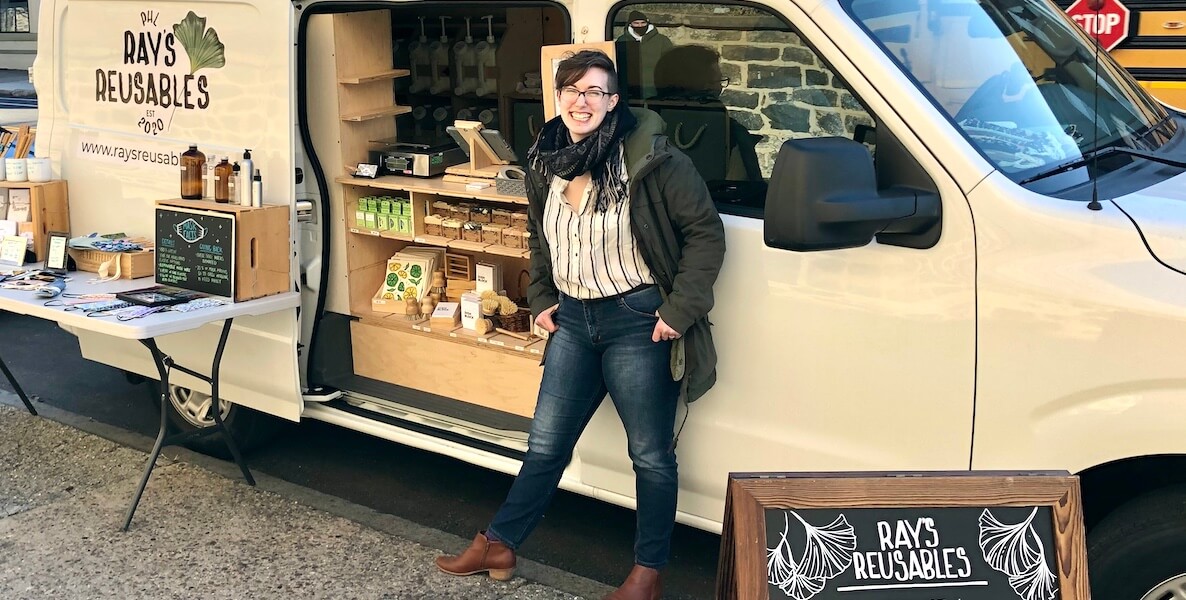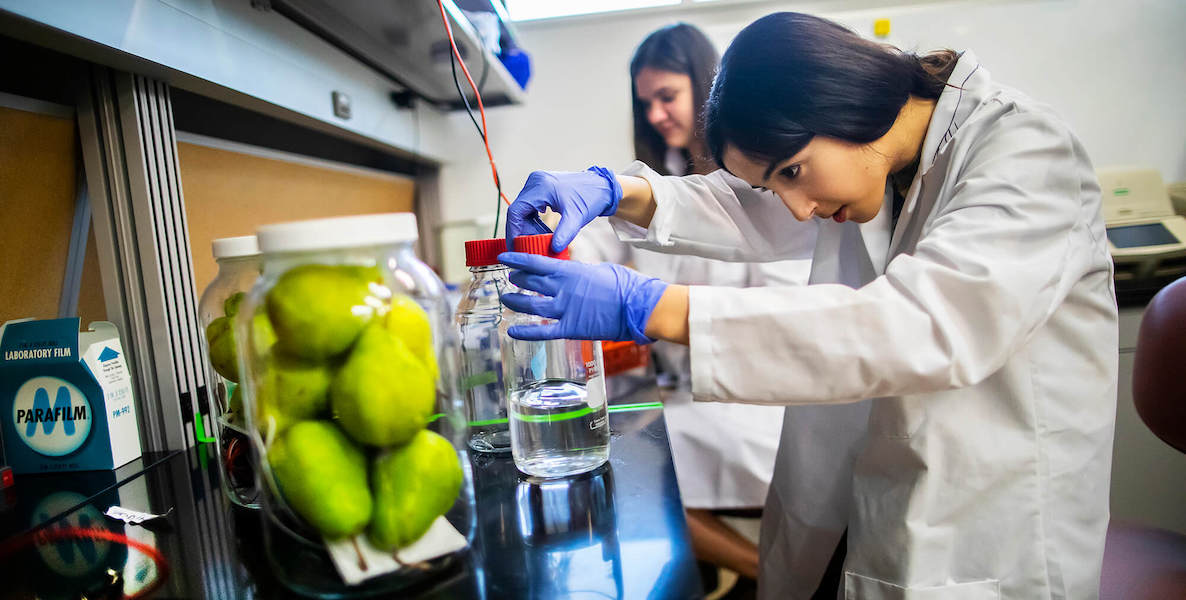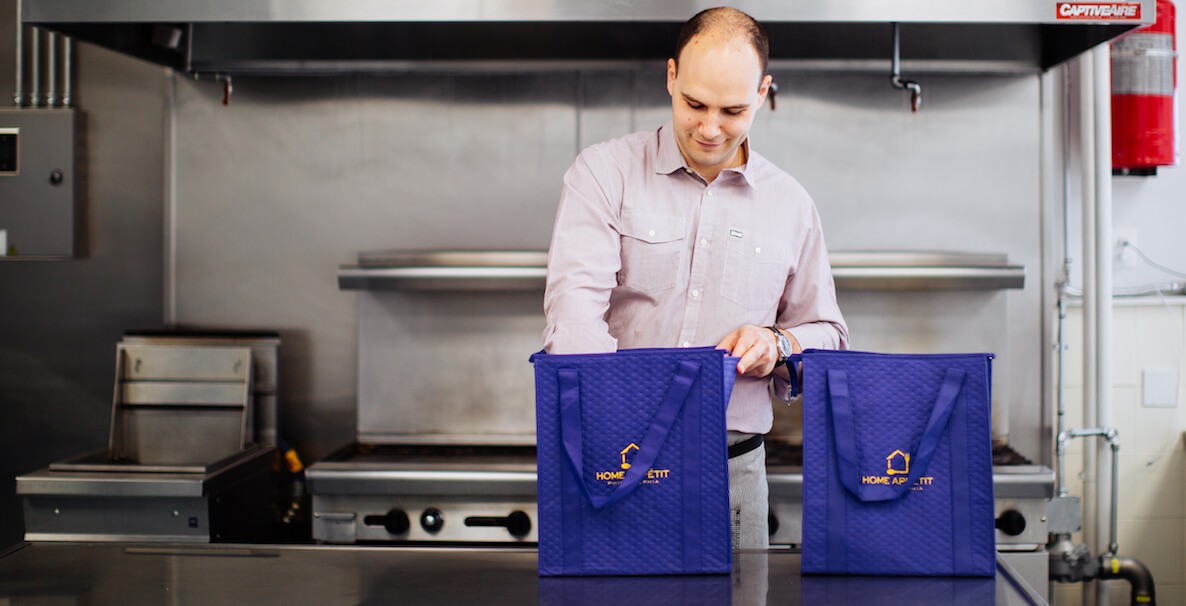It all began with cotton candy.
Lee Wallach was 12 at the time, and his father—knowing how much his wife loved the sugary treat—gave Lee’s mother a cotton candy machine as a gift. To Wallach, that machine was about more than easy access to the sticky confection. It was an opportunity.
The budding entrepreneur realized cotton candy was easy and cheap to manufacture, and that he could make a profit selling it. He put fliers up at a local Jewish community center in his native Allentown—which happens to be home to a large cotton candy manufacturer, which gave him easy access to supplies—and was soon in demand for bat mitzvahs, birthday parties, local festivals and fairs. He sold each roll of cotton candy for $1, and soon had enough to buy the machine outright from his parents.
MORE ON LOCAL BUSINESSES DOING GOOD
“I was always, always looking for different ways to make money and do business,” Wallach says.
That was the start of a long (and now radically different) food career for Wallach, which included, at age 14, his first job working in a restaurant—followed shortly after by a second job, at a different restaurant, because he loved the camaraderie of working side-by-side with other chefs so much—and stints in restaurants from New York to Napa. Everything seemed headed towards one dream: opening his own restaurant.
But shortly after moving back to Philadelphia to be closer to family, Wallach’s plans started to shift. As a restaurant chef, he often worked evenings and weekends and found that, while his wife was supportive, that kind of career isn’t conducive to having a family. Instead, he started working as a personal chef, making meals for people from different walks of life—from professional athletes to elderly people who needed nutrition assistance.
“Very quickly I saw that there was a really good opportunity to have a good quality of life, to make good money, and to really help people,” Wallach says.
A rapidly growing business
In 2014, he built a website called Home Appétit, and started cooking and delivering meals for about 10 clients out of his family’s apartment on 6th and Chestnut, recruiting more clients through word of mouth.
Seven years later, Home Appétit is a booming Philly-based business that delivers nearly 5,000 chef-prepared meals weekly in the Philadelphia region. Revenue for the company has grown between 20 to 40 percent each year, according to Wallach, and in 2021 the business is on track to hit $3 million in revenue, a near 100-percent jump from 2020.
Throughout this rapid growth, Wallach from the start has committed to business practices that the food industry as a whole is now being forced to adopt post-pandemic. He provides all employees a living wage that isn’t tip-reliant (even during the pandemic); sources his food locally and sustainably; and has helped local restaurants that were struggling as a result of Covid-19, through partnerships that brought meals from local businesses into the homes of Home Appétit clients.
“Very quickly I saw that there was a really good opportunity to have a good quality of life, to make good money, and to really help people,” Wallach says.
“Philadelphia is our community,” Wallach says. “We have always tried to make sure that we are supportive and involved.”
Home Appétit now offers two services: Clients can have an in-home personal chef who creates custom meals for their family, starting at $300 per week; or, they can sign up for a meal delivery service, selecting four entrées and four greens and grains dishes each week. Prices start at $100 for the week for a single person and increase by $50 for each additional person. Customers can also add on additional items, like children’s meals, desserts, or breakfast items, for an additional cost. The business is entirely funded through sales and has been from the beginning.
Meals vary from week to week and feature a variety of cuisines from different cultures, but one menu staple remains consistent: chicken cutlets served with different sauces, a meal Wallach’s mother served when he was growing up.
“We always had them in the house. There was always a big container of them,” he recalls. “So Home Appétit started making that from day one, and it’s the one thing that has never left the menu.”
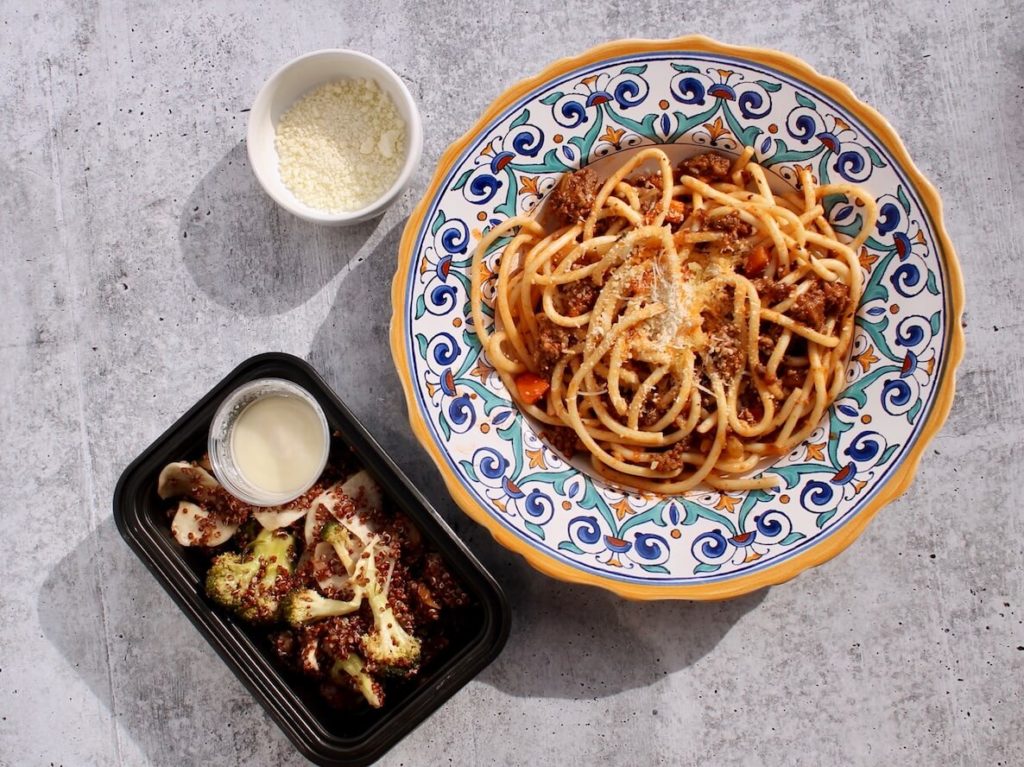
Home Appétit’s growth mirrors that of the meal delivery service market nationally. Previously, meal delivery services were targeted towards people who were trying to follow strict diets or lose weight, like with Weight Watchers. Now, the market has expanded to meal prep kit services, like Hello Fresh and Home Chef, which cater to those looking for fast, convenient options for meals. By 2027, the meal kit delivery services market is expected to reach almost $20 billion.
With Home Appétit, customers get the convenience of a delivered meal combined with the social good of shopping at a Whole Foods—at a fraction of the cost and time. The focus, Wallach says, “is on cooking wholesome, tasty food that you can feel good about eating.”
To that end, chefs prepare vegetable-heavy meals paired with lean proteins and whole grains. Many of the ingredients are locally sourced, with an eye towards reducing food waste. Home Appétit works with a variety of local farms and distributors including Green Meadow Farm, Urban Roots Farm, Common Market, Samuels & Son and D’Artagnan Foods to source ingredients; they minimize food waste by buying only what’s needed and help farmers by purchasing crops that they have in excess. Wallach says that the business will even change menu plans on-the-fly to accommodate farmers who need to sell off vegetables before they go bad.
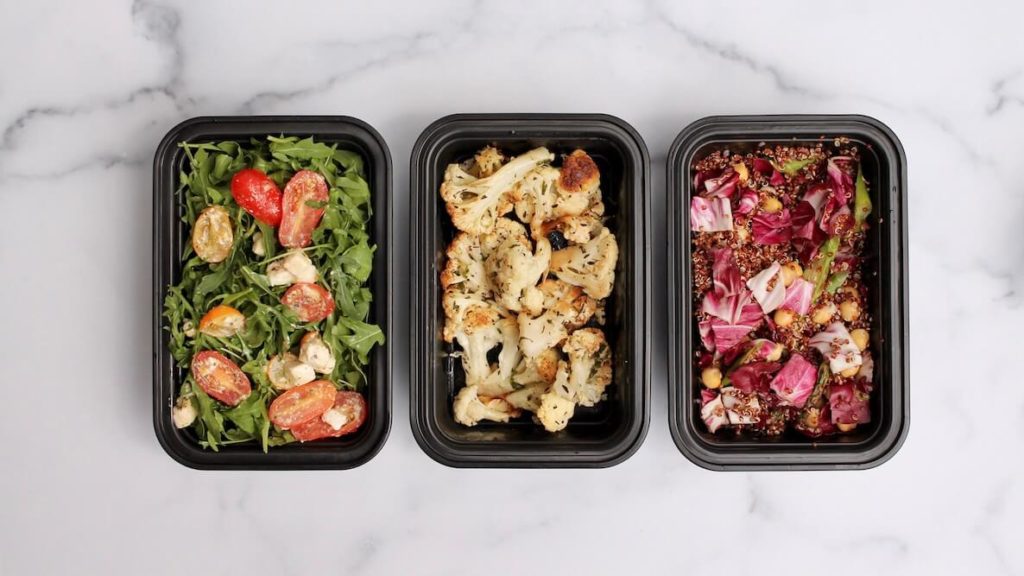
All of the meals come packed in recyclable containers, and Wallach has worked with his suppliers to reduce single-use plastic throughout the meal packaging and preparation process. Though they work hard to accurately predict the quantity of food they’ll need each week, any food waste is composted with Heritage Farm.
Convenience, healthy meal options and sustainability are all part of what attracted Thrive Pilates Founder Hally Bayer to Home Appétit’s meal delivery service. As busy entrepreneurs, Bayer and her husband, Saxby’s CEO Nick Bayer, would rather spend their free time with their 7-year-old son than planning and cooking dinner. Bayer loves Home Appétit’s service, because it allows her to feed her family healthy meals while supporting a local business that emphasizes sustainability.
“It is really important to me what I put into my body and how I feed my family, so I’m really grateful for the option of having Lee and his amazing team preparing healthy and nutritious meals for us that taste delicious,” she says.
‘Everybody wins’
Given the business’ growth, Wallach has had to double his staff and expand delivery zones. Currently, Home Appétit employs 20 cooks, 25 drivers and two corporate employees. Though many restaurants and food service companies outsource aspects like delivery, Wallach is committed to keeping all of the business’ services in-house, so that Home Appétit can employ as many people as possible and ensure they earn a living wage.
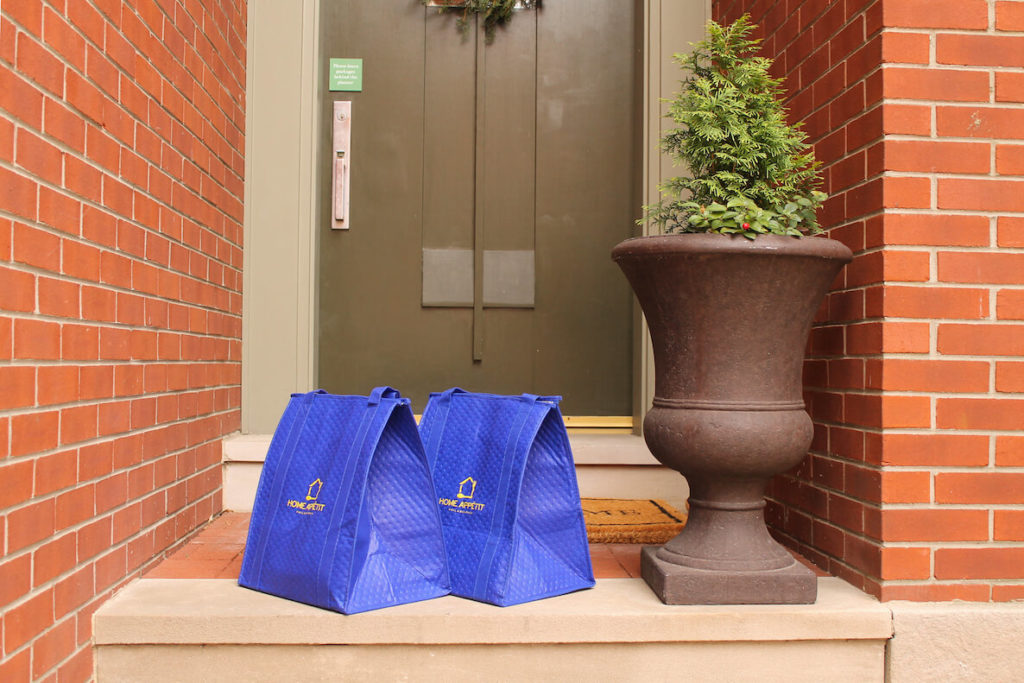
No one employed by Home Appétit makes less than $15 an hour. Comparatively, drivers for services like Doordash are paid through a combination of a base rate—which can range from $2-$10 depending on the length of the delivery—tips, and promotional pay which comes from delivering during peak hours. (One New York app-based delivery driver told the New York Times recently he made only $11 in four hours of work.)
“It’s mutually beneficial,” Wallach says. “Get more buy-in from your team, and you get more buy-in from your customers, because they feel like they’re supporting something [meaningful]. Everybody wins.”
After the Covid-19 pandemic hit, Home Appétit made additional efforts to ensure their employees were able to get by financially. When the business closed for a few weeks at the start of the pandemic, Wallach continued to pay all of the company’s workers. “They still had to feed their families and they still had to live,” Wallach says. “I did everything I could to make sure that everybody had that full payroll for the entire time that we were closed.”
He’s also tried to reduce some of the hierarchies found in traditional kitchens, so that employees can find opportunities to grow. Dishwashers can learn about butchering or food preparation and anyone—including Wallach—can be found pitching in by washing a load of dishes.
“I always make sure that no matter where someone’s from and no matter what their background may be, they have more than equal opportunity in our kitchen,” Wallach says.
The pandemic wound up proving good for Home Appétit’s business because it opened up the opportunity to partner with local restaurants as more people were staying home and looking for opportunities to order in food. Meanwhile, Wallach worked with doctors and nurses to make sure that frontline workers and any families in need had food to eat at the start of the pandemic. They delivered meals to testing centers, community locations and call centers. They funded their efforts through donations from clients and were able to provide over 2,500 meals to children and families in need.
“Philadelphia is our community,” Wallach says. “We have always tried to make sure that we are supportive and involved.”
When it became clear that restaurants like the ones Wallach had come up working in were facing months of scarcity, Home Appétit invited local restaurants like High Street Philly, baology, Vanilya Bakery, Third Wheel and Birdie’s Biscuits to sell their food as an add-on in meal delivery service. This option gives Home Appétit’s customers increased variety while boosting the restaurant’s weekly orders, without charging them the fees that services like Grubhub, Caviar and UberEats use to earn a profit.
“These companies are taking [almost] 30 percent from the sale which, if you know anything about the economics of restaurants, you know they’re basically cutting out all of the profits,” Wallach says.
Though they moved into a new kitchen early last summer, the company is already looking into the possibility of moving into an even bigger space to support their continued growth. Wallach says that adding a subscription option for the meal delivery service is in the works and that he hopes to someday expand to other states.
As the company has continued to grow, Wallach has looked for more ways to give back to the city, too. The business is currently working with Methodists Services to create a job-training program targeting single mothers who live on the Methodist Services campus. They plan to launch the program, which would train people in food prep and commercial kitchen work, later this summer.
“We just want to do more, committing ourselves more to the local community to be supportive” Wallach says.
Header photo: Lee photo by Rosie Simmons



